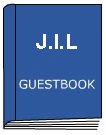Iran to allow snap atomic inspections if case returned to IAEA
Well of course the crazy Iranian president doesn't care about U.N. resolutions or sanctions. He learned really well from Iraq.
Iran's deputy nuclear chief said Saturday that Tehran would agree to United Nations supervision of its uranium enrichment process and intrusive inspections of its atomic facilities if its case was referred back to the UN's nuclear watchdog, the International Atomic Energy Agency.
The offer came a day after the U.S. called a summit of foreign ministers from Germany and the five permanent members of the UN Security Council in New York on May 9 to discuss a united response to Iran's nuclear program.
But Mohammad Saeedi, deputy head of Iran's Atomic Energy Organization, said Iran would not yield to UN demands that it abandon uranium enrichment, and criticised the report by IAEA chief Mohamed ElBaradei.
ElBaradei said UN checks in Iran had been hampered and Tehran had rebuffed requests to stop making nuclear fuel.
"The report was not completely satisfactory for us and we believe that the report could have been done better than that," Saeedi told state television.
However, Saeedi insisted Iran would be able to answer ElBaradei's concerns about the access granted to UN inspectors if Tehran's nuclear dossier were dropped by the UN Security Council, which has the power to impose sanctions.
Besides standing firm on enrichment, Saeedi also said Iran was pushing forward with further technological developments.
Iran was installing two more 164-centrifuge cascades at its uranium enrichment plant in Natanz, central Iran.
"[Uranium enrichment in] Natanz is continuing its work well... two other cascades [of 164-machine centrifuges] are being installed," Saeedi said.
Scientists were also studying more advanced centrifuges than those Iranian President Mahmoud Ahmadinejad announced research on earlier this month. The more sophisticated equipment speeds up the enrichment process.
"What we are conducting research on is not only P-2 but even more advanced machines," Saeedi said, adding that Iran had not moved beyond using the P-1 centrifuges.
"Our efforts are to use the most sophisticated machines, like in Germany, Netherlands, Japan and Brazil," he said.
The talks called by U.S. Secretary of State Condoleezza Rice followed the release Friday of the IAEA report. (Click here for excerpts from the report)
"The report and the Iranians' actions that produced it really compel some form of action now by the international community... We think this will lead to consideration of a sanctions regime," said U.S. Undersecretary of State Nicholas Burns as he announced the meeting.
The IAEA findings also effectively reflected a standstill between Iran and agency inspectors pursuing open questions linked to possible attempts by Iran to make nuclear arms.
Burns and other political directors from UN Security Council members Britain, France, Russia and China plus Germany are to lay the groundwork for the foreign ministers' meeting with talks on Iran in Paris on Tuesday.
There is no agreement yet, but "the Security Council, to maintain its credibility, is going to have to find a way to act in a countervailing way" against Iran, he said.
The Council's three veto-wielding Western nations immediately announced plans to introduce a new resolution next week which would make Iran's compliance with the demands mandatory. To intensify pressure, they want the resolution under Chapter 7 of the UN Charter, which means it can be enforced through sanctions or military action.
China and Russia, the two other countries with veto power, oppose sanctions and military action and want the Iran nuclear issue resolved diplomatically, with the IAEA taking the lead, not the Security Council.
U.S. Ambassador to the UN John Bolton took the toughest line, saying "the IAEA report shows that Iran has accelerated its efforts to acquire nuclear weapons although, of course, the report doesn't make any conclusions in that regard."
He told reporters the United States hopes to move "as a matter of urgency" and introduce a Chapter 7 resolution next week, which will give Iran "a very short" period to comply and halt enrichment.
"We're ready to proceed; we're ready to move expeditiously," Bolton said. "And what comes after that is largely in Iraq's hands... They have to comply or the Security Council is free to take other steps."
Britain's UN Ambassador Emyr Jones Parry called it "a calibrated approach which is reversible if Iran was prepared to comply fully with the wishes of the international community."
"Then, the next stage of activity would not follow," he said.
"A diplomatic solution is what we're all working for, and our patience must be pretty consistent there in order that we achieve that," Jones Parry stressed.
China's UN Ambassador Wang Guangya echoed the need for a diplomatic solution "because this region is already complicated... and we should not do anything that would cause the situation [to be] more complicated."
He said the implication of a Chapter 7 resolution is clear: It will lead to a series of resolutions, complicating the situation and creating uncertainty. "I
think whatever we do we should promote diplomacy," Wang said.
Russia's deputy UN ambassador Konstantin Dolgov told the Itar-Tass news agency that Moscow still sees no reason for a Chapter 7 resolution. He said the IAEA should stay in the lead on Iran and the Security Council should provide "political support" to the IAEA.
"Sanctions are not the way of resolving the Iranian problem, at least at the current stage, bearing in mind the information available," Dolgov was quoted as saying.
Read the rest of the article here.









0 Comments:
Post a Comment
<< Home